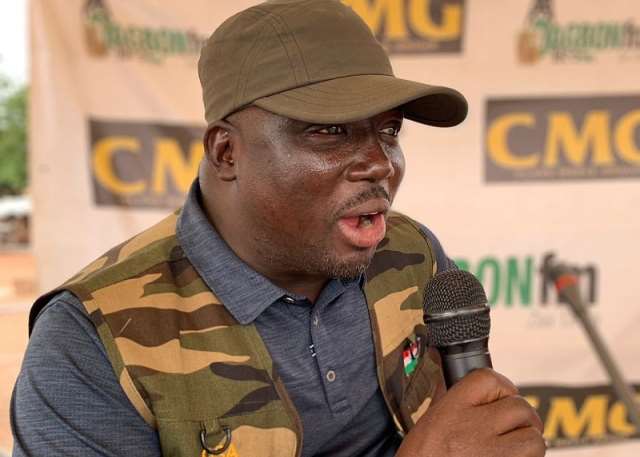The Ablekuma North constituency, a political battleground in Ghana, is facing a crucial rerun election to determine its parliamentary representative. The ruling National Democratic Congress (NDC) is vigorously campaigning to wrest the seat from the New Patriotic Party (NPP), which has held it since 1992. The NDC argues that the NPP’s long tenure has yielded little in terms of development and poverty reduction, leaving the constituency lagging behind. Mustapha Gbande, Deputy General Secretary of the NDC, emphasizes that the election transcends political affiliations and is fundamentally about bringing much-needed development to the area. He stresses the importance of electing the NDC candidate, Ewurabena Aubynn, to ensure that the constituency receives the governmental attention and resources it deserves. Gbande criticizes the incumbent NPP administration for neglecting the constituency’s pressing needs, highlighting issues such as poor drainage systems and persistent poverty. He asserts that the people of Ablekuma North deserve a fair share of national resources and development.
The NDC’s campaign message centers on the promise of development and a commitment to addressing the constituency’s long-neglected issues. They believe that electing Ewurabena Aubynn will provide a direct link to the government and facilitate the flow of development projects and resources to the area. The NDC is portraying itself as the party of change, ready to break the cycle of neglect and usher in an era of progress and prosperity for Ablekuma North. They are appealing to voters’ desire for improved living conditions, better infrastructure, and greater economic opportunities. The party is emphasizing the need for a representative who will actively champion the constituency’s interests and ensure that its voice is heard in the national parliament.
The NPP, however, has taken a controversial stance by boycotting the rerun election. Despite fielding a candidate, Nana Akua Owusu Afriyie, the party has expressed its disagreement with the Electoral Commission’s decision to hold the rerun. This boycott creates a unique dynamic in the election, essentially leaving the field open for the NDC. While the NPP’s reasons for boycotting remain unclear, it leaves a significant portion of the electorate without active representation in the contest. The NPP’s absence raises questions about its commitment to the democratic process and its willingness to engage with the concerns of the Ablekuma North constituents.
The rerun election in Ablekuma North holds significant implications for the political landscape of Ghana. The outcome will not only determine the constituency’s parliamentary representative but also send a message about the electorate’s priorities and their assessment of the performance of the ruling NDC and the opposition NPP. A victory for the NDC would signify a shift in the political dynamics of the constituency and could embolden the party as it prepares for future elections. Conversely, a low voter turnout due to the NPP’s boycott could raise questions about the legitimacy of the election and create further political tensions.
The issues at stake in Ablekuma North resonate with broader challenges facing Ghana. The need for equitable development, poverty reduction, and improved infrastructure are concerns shared by many communities across the country. The election in Ablekuma North serves as a microcosm of these national issues and highlights the importance of effective representation and responsive governance. The outcome of this election will not only impact the lives of the people of Ablekuma North but also contribute to the ongoing national conversation about development, political participation, and the future of Ghanaian democracy.
The rerun election in Ablekuma North stands as a critical juncture for both the constituency and the nation. The NDC’s focus on development and the NPP’s decision to boycott have created a unique and potentially transformative political moment. The ultimate outcome will depend on the choices of the voters and their assessment of the competing visions presented by the parties. The election’s aftermath will likely shape the political landscape of Ablekuma North for years to come and contribute to the broader national discourse on development, representation, and the future of Ghanaian democracy.


